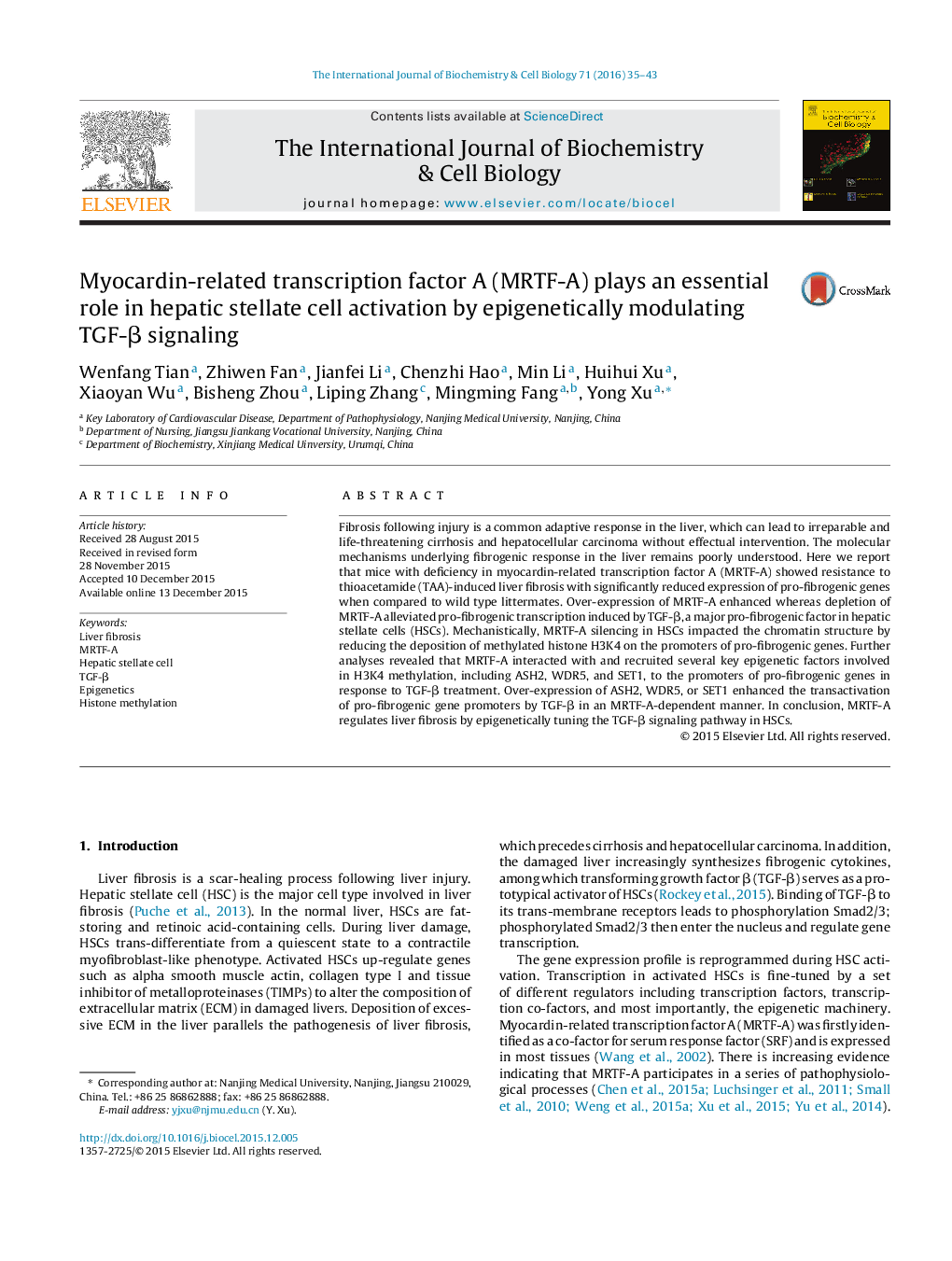| Article ID | Journal | Published Year | Pages | File Type |
|---|---|---|---|---|
| 1983371 | The International Journal of Biochemistry & Cell Biology | 2016 | 9 Pages |
•TAA-induced liver injury and fibrosis are attenuated in MRTF-A deficient mice.•MRTF-A mediates TGF-β induced pro-fibrogenic transcription in HSCs.•MRTF-A recruits a histone H3K4 methyltransferase complex to pro-fibrogenic promoters.•COMPASS proteins are essential for pro-fibrogenic transcription in HSCs.
Fibrosis following injury is a common adaptive response in the liver, which can lead to irreparable and life-threatening cirrhosis and hepatocellular carcinoma without effectual intervention. The molecular mechanisms underlying fibrogenic response in the liver remains poorly understood. Here we report that mice with deficiency in myocardin-related transcription factor A (MRTF-A) showed resistance to thioacetamide (TAA)-induced liver fibrosis with significantly reduced expression of pro-fibrogenic genes when compared to wild type littermates. Over-expression of MRTF-A enhanced whereas depletion of MRTF-A alleviated pro-fibrogenic transcription induced by TGF-β, a major pro-fibrogenic factor in hepatic stellate cells (HSCs). Mechanistically, MRTF-A silencing in HSCs impacted the chromatin structure by reducing the deposition of methylated histone H3K4 on the promoters of pro-fibrogenic genes. Further analyses revealed that MRTF-A interacted with and recruited several key epigenetic factors involved in H3K4 methylation, including ASH2, WDR5, and SET1, to the promoters of pro-fibrogenic genes in response to TGF-β treatment. Over-expression of ASH2, WDR5, or SET1 enhanced the transactivation of pro-fibrogenic gene promoters by TGF-β in an MRTF-A-dependent manner. In conclusion, MRTF-A regulates liver fibrosis by epigenetically tuning the TGF-β signaling pathway in HSCs.
